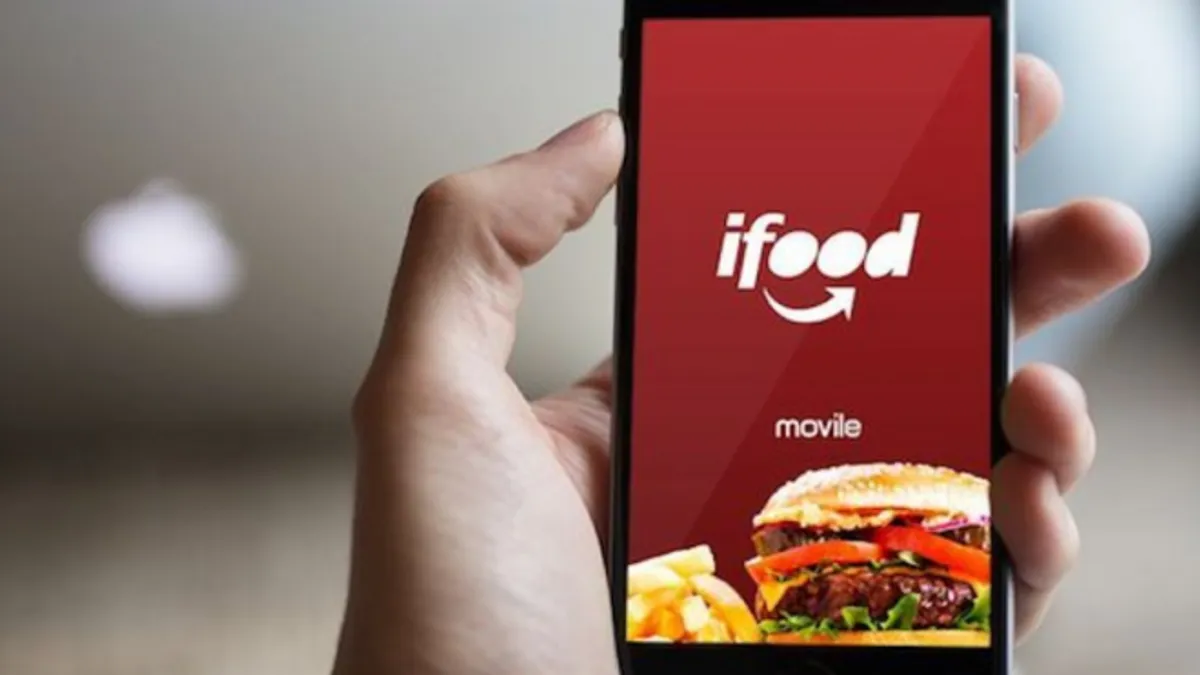Dive Brief:
- Brazilian delivery company iFood raised $500 million in perhaps the largest funding of a Latin American tech startup, reported Forbes. The company secured $100 million earlier this fall and an additional $400 million this week, according to Reuters.
- Owned by a mobile conglomerate called Movile (which is owned by South African media group Naspers), iFood works with 50,000 restaurants in Brazil, Argentina, Mexico and Colombia. The company has acquired smaller competitors as it has expanded and will do the same with some of this investment, which will also improve logistics, AI and voice recognition technology.
- In ambitious plans, iFood aims to triple its restaurant count and double its workforce, especially in tech roles. Currently processing 390,000 orders per day, according to Movile’s founder Fabricio Bloisi, iFood theoretically reached $1 billion in value in 2017, but will wait on going public.
Dive Insight:
After investing $1.4 million in iFood, Movile sunk another $2.6 million in 2014 per Techcrunch, the app grew from 25,000 orders a month to more than 1 million. Additional funding from private equity firms and Brazilian billionaire Jorge Paulo Lemann helped the company gobble up basically all nearby competitors, paving the way for iFood’s growth to more than 6 million monthly orders.
Bloisi noted similarities between U.S. delivery leader Grubhub and iFood, particularly with per-day order counts. Grubhub reports about 416,000 orders every day, while iFood has neared the 400,000 mark and, apparently, still has room to grow. But unlike Grubhub, iFood doesn’t just offer delivery to restaurants. It also offers analytics, an online marketplace and financial services products.
Grubhub started as more of an online solution than a tech company, which could be hurting its ability to help restaurants take advantage of their delivery data. UberEats might have a leg up in that regard, and in its two years of existence, it quickly learned that restaurants desire those tools. Unlike Grubhub, which only operates in the U.S. and London, Uber works with 50,000 restaurants in 70 cities worldwide and has also harnessed its popularity for business travelers by launching corporate management accounts for ride-sharing and food delivery.
Of course, those two aren't the only ones in the game. As Forbes reported in March, Postmates raised $278 million and DoorDash added $535 million in funding last spring, the latter after previously raising $170 million total since its 2013 launch. It plans to triple its city-count to 1,800 by the end of the year. DoorDash is also experimenting with partner advertising that would let restaurants promote delivery on their websites, but the delivery company would handle the rest.
Yet the bigger picture isn't necessarily rosy. Restaurants have been peeved that companies like DoorDash sometimes list their business without seeking approval or a formal contract. Internationally, the U.K.’s leading delivery app Just EAT has faced scrutiny for its charges to restaurants, which include a $900 activation fee and a 14% commission per order. But Just EAT and competitor Deliveroo both operate in 13 countries, primarily in Europe, the Middle East and Asia.
For iFood, being a child of a mobile giant like Movile has its perks. The company also invests in children's entertainment platform Playkids, ticketing app Sympla and payments fintech Zoop, which it hopes to leverage into ride-sharing and online shopping. Techcrunch compares Movile's all-in-one moves to China’s Tencent, whose 2017 earnings neared $22 billion. As it stands, the global food delivery field seems as wide open as many believe it to be in the U.S., and iFood seems poised to play.












